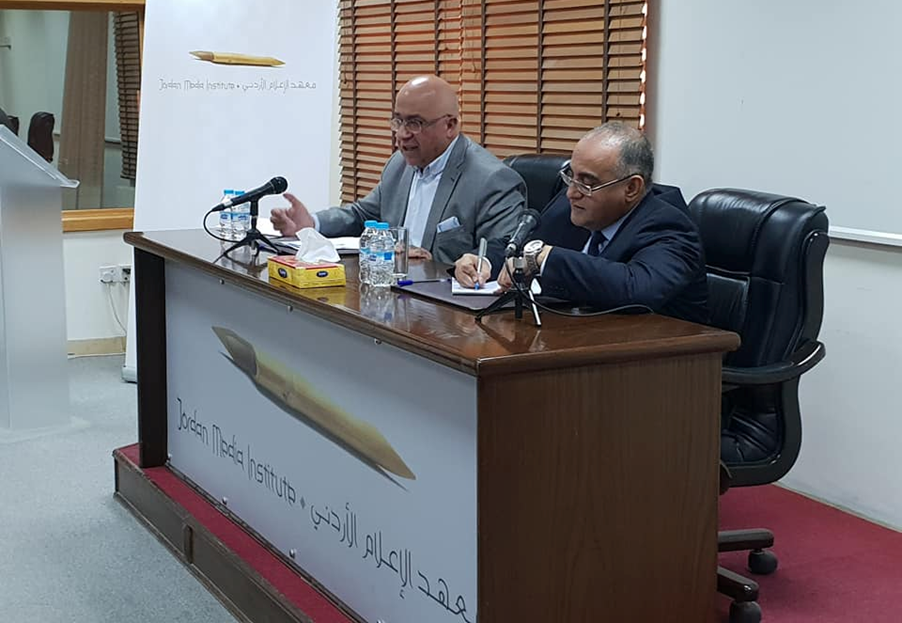
Amman – Jordanian Minister of Political and Parliamentary Affairs, Musa Maaytah, said that political reform is not solely achieved through changing the electoral system.
In his lecture at Jordan Media Institute (JMI), which was moderated by JMI Dean Dr. Basim Tweissi, Maaytah pointed out that a new election law has not been discussed yet and that conducting further dialogues is essential prior to drafting the new law.
Maaytah elaborated on the pace of political reform in Jordan, adding that its progress cannot be considered slow but rather gradual, safe and collective. The reform plan is moving forward regardless of the communal interaction, he added.
During his meeting with JMI students, the minister revealed that the government’s current plan prioritizes an open and wide discussion about reforming the decentralization law.
Reaching an agreed-upon law is very important, he added, one that strengthens the local administration system and harmoniously brings all sectors under one umbrella.
As for political parties, Maaytah explained that the government seeks to amend the financial support system from which these political parties are benefiting.
Each party’s support will be based on its political role as well as the number of votes and seats obtained. Accordingly, citizens will be able to determine the amount of financial benefits given to each party through ballot boxes.
Maaytah clarified that the current financial support system has failed to achieve its objectives; which mainly aims to increase the political participation of these parties in the parliament.
The minister urged Jordanian youth to initiate forming new political parties that better match their ambitions and aspirations, adding that the Ministry of Political and Parliamentary Affairs, along with the Ministry of Culture, look forward to boosting youth participation in parliamentary work; one that is based on political grounds rather than tribal considerations.
His Majesty King Abdullah II has always encouraged youth involvement in political work, and so has the government, Maaytah added. Each year, the state allocates 50,000 Jordanian Dinar to political parties, which clearly proves the government’s keenness to have these parties involved in political work, he added.
Maaytah also clarified that these political parties are vital to paving an efficient communication channel between the government and the public.
Finally, Maaytah stressed the need to raise political awareness through education, which is considered one of the most important tools in nurturing a civil culture in upcoming generations.



